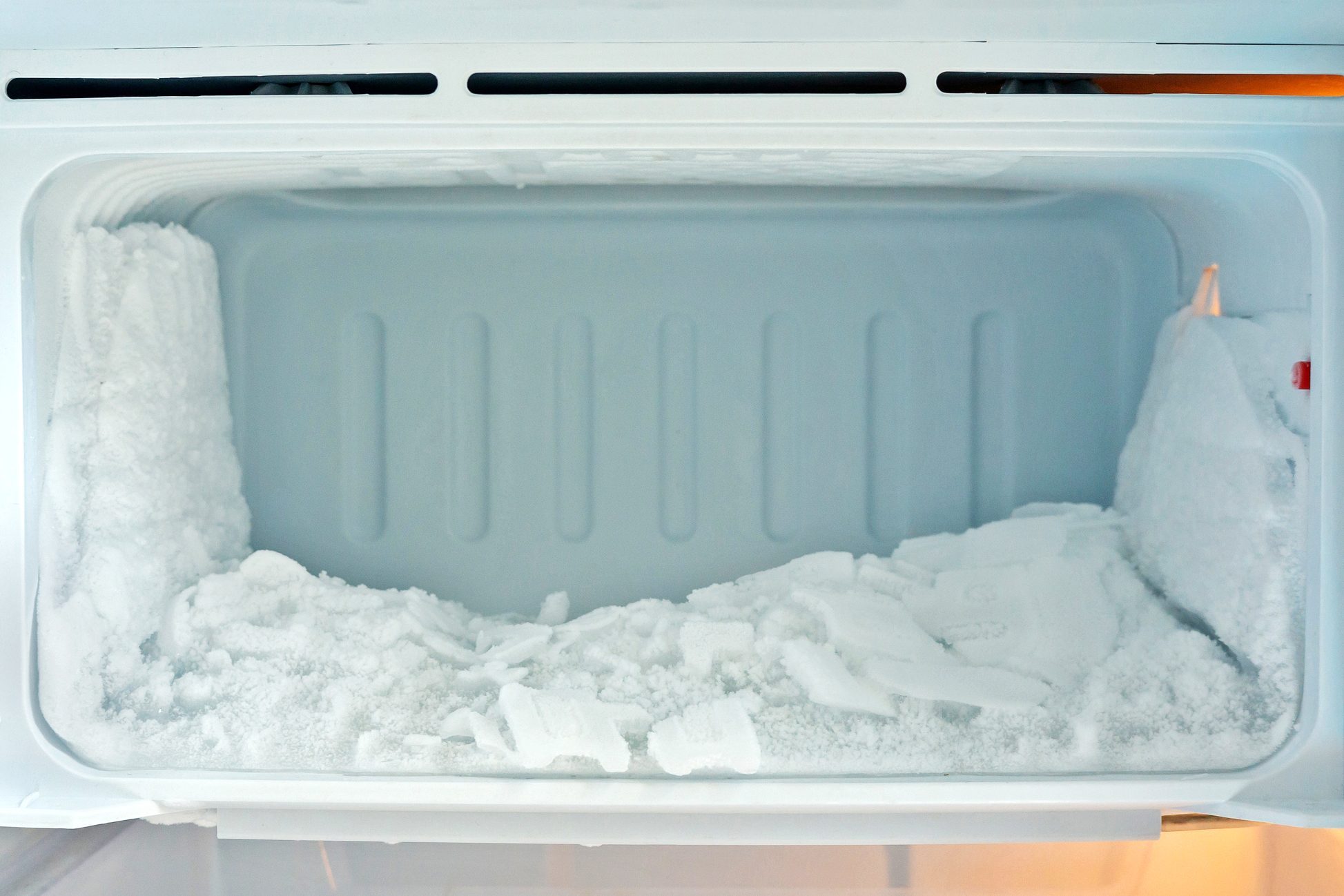Freezer frost isn't just unsightly. It can impact food quality, cause a nasty odor, and even weaken your freezer's efficiency. But there are ways to combat it.

If You Have Frost in Your Freezer, This Is What It Means

Frost buildup in your freezer can cause a wide range of problems for the appliance and the food stored in it. But do you know what causes freezer frost—and, better yet, how to prevent it?
What is freezer frost, and what causes it?
Accumulated frozen moisture on the interior walls and shelves of your appliance is commonly known as freezer frost. It occurs when “moisture comes into contact with the evaporator coils inside your freezer and then freezes,” according to General Electric.
Moisture collects on evaporator coils in a few ways. Leaving the freezer door open too long is probably the most common. A worn or damaged gasket (the door seal) will allow warm air in and cold air to escape, contributing to freezer frost.
Hot food placed in the freezer can also produce humidity, which causes frost buildup. Other sources include malfunctioning defrost timers, heaters, and thermostats, according to GE. By the way, here’s why there isn’t a light in your freezer.
The negative impacts of freezer frost
It’s important to take action if you notice frost buildup in your freezer. Here’s what happens if you don’t:
- Reduced freezer storage space
- A foul odor
- “Freezer burn,” those crystals that give your food an off taste
- Damage to the appliance
Freezer frost removal and prevention
To remove freezer frost, unplug your appliance and wait for the frost to melt, according to Summit Appliance. Then wipe up all the moisture, let everything dry, and plug the appliance back in. Don’t scrape off the ice with a knife or any other sharp object. That can damage the appliance and the object you’re using.
Here are a few prevention tips to avoid frost buildup:
- Don’t open your freezer door longer than necessary
- Regularly check the gasket for damage
- Double-check to be sure the freezer door closes completely
- Only place cooled food in the freezer
- Do not place the freezer near warm appliances like a furnace, dryer, or water heater
- Leave room between the back of the freezer and the wall
- Be sure the freezer is set to an appropriate temperature
Next, learn which foods you shouldn’t keep in your freezer (and why).
Sources:
- General Electric: “Why Is My Freezer Frosting Up?”
- General Electric: “Refrigerator—Frost or Ice Crystals on Food in Freezer”
- Summit Appliance: “How to Defrost Your Freezer: The DOs & DON’Ts of Defrosting”



















